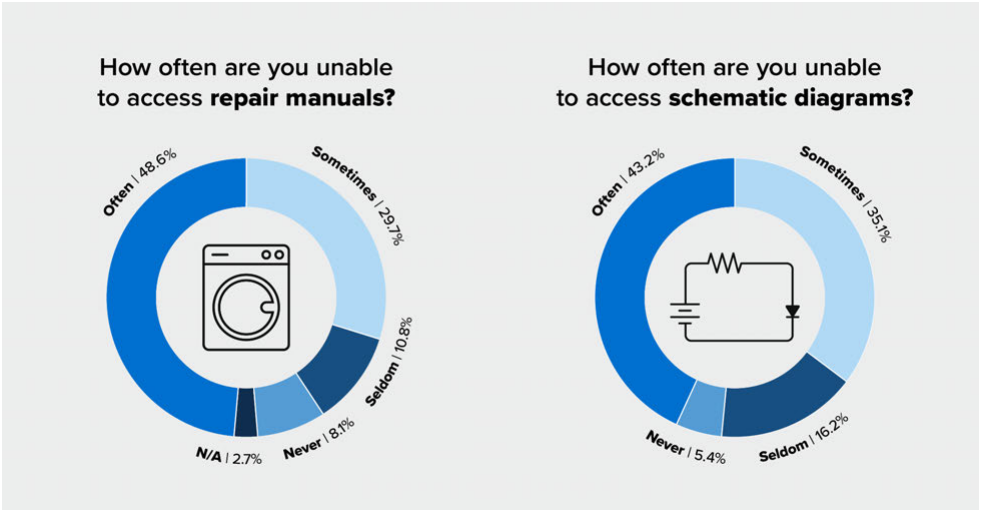Nathan Proctor
Senior Director, Campaign for the Right to Repair, PIRG
Senior Director, Campaign for the Right to Repair, PIRG
Former Communications Associate, The Public Interest Network
As the FTC considers requiring manufacturers to provide access to repair materials, investigation highlights barriers that thwart appliance repair and drive up costs
WASHINGTON — As the Federal Trade Commission (FTC) considers requiring manufacturers to disclose appliance repair instructions, repair advocates released on Tuesday an investigation that found the vast majority of appliance manufacturers (86%) do not share repair manuals with users. The investigation, submitted to the FTC by PIRG, iFixit and Repair.org, surveyed 50 appliance makers, 37 appliance technicians, industry experts and reviewed a wide range of academic research on the topic of appliance repair.
“The manufacturers that make our home appliances have an incentive to either monopolize repair or discourage it so that their customers are forced to buy new products,” said Nathan Proctor, senior director of PIRG’s Right to Repair campaign. “People are fed up. It shouldn’t be so hard to access a repair manual. We want dishwashers and refrigerators that are easy to fix and last a long time.”
Key findings include:

Results from our survey of repair technicians showing how often professional struggle to access needed documentation.Photo by iFixit | CC-BY-4.0
“Even professional appliance repair technicians are struggling to access the information they need to do their jobs,” said Elizabeth Chamberlain, director of Sustainability at iFixit. “Consumers who want to fix their own stuff are completely out of luck. Appliance repair is in a dismal state, and the FTC has an opportunity to make repair more accessible and affordable for everyone.”
Last October, the FTC announced that it would be updating the rules for the EnergyGuide appliance rating program, pending public comments, to make it easier to repair covered products by improving access to repair information. The proposed reforms represent a huge advance for allowing consumers and independent repair technicians to fix appliances, such as dishwashers, refrigerators and washing machines.
“Appliance repair manuals, like car repair manuals, are one of the five key requirements of right to repair, without which repairs are functionally impossible,” said Gay Gordon-Byrne, executive director of Repair.org, which represents repair shops including appliance technicians. “A requirement to share manuals opens the door to more repair options, better informed customers and shows all of us how the things we use are designed to work.”
The aim of the familiar yellow EnergyGuide label is to help consumers save money and reduce the environmental impact of their appliance usage. The investigation underscores crucial role of repair for protecting the environment:
The report recommends: “The FTC would do well to include access to repair information directly on the EnergyGuide label, through QR codes, URLs, or both. Wider public access to appliance repair information would boost the feasibility of do-it-yourself repair, increase competition in the repair market, and ultimately benefit both the environment and consumers’ wallets.”
The full investigation is posted here.